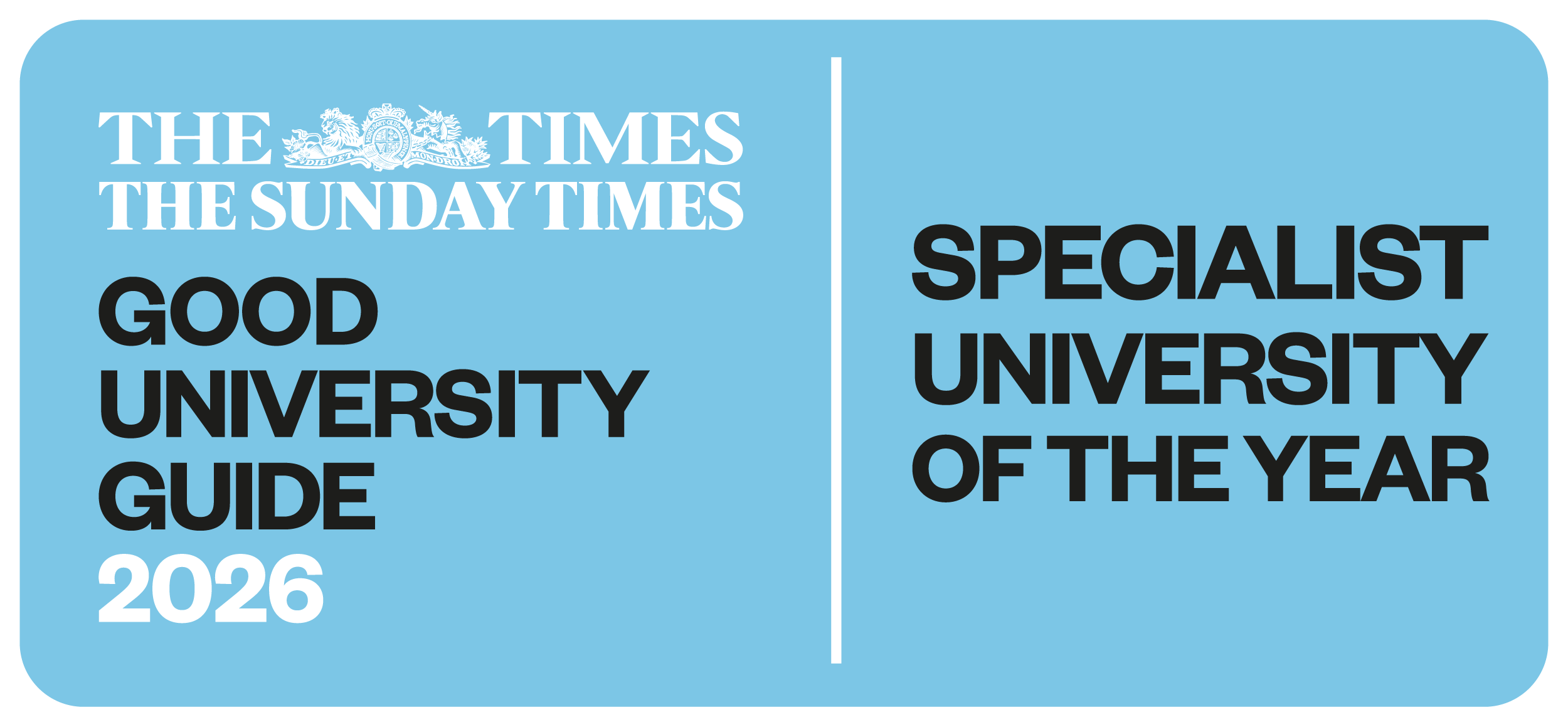May is Veterinary Nurse Awareness Month, and we’re proud to celebrate the vital role every veterinary nurse plays in practices across the country. As we celebrate our 75th anniversary, here at Hartpury, we’re also marking more than two decades of providing veterinary nurse education and training.
During those twenty years, the industry has changed dramatically and Hartpury University has developed a reputation for producing skilled, resilient and well-rounded veterinary nurses.
If you’re considering whether a career in veterinary nursing is right for you, check out our handy guide and the education pathways available to you here at Hartpury University.
What is a veterinary nurse?
Registered Veterinary Nurses (RVNs) are highly skilled professionals, who've gained qualifications that enable them to join the Royal College of Veterinary Surgeons’ Register of Veterinary Nurses.
What does a veterinary nurse do?
If you think that RVNs just cuddle puppies, kittens and foals all day, you’d be wrong!
RVNs have a wide range of roles and responsibilities which require the development of advanced skills, including monitoring anaesthesia, administering medication, diagnostic imaging, laboratory work, and minor surgeries as well as in-patient care.
RVNs work with clients to be the advocate for the patient and provide them with the information they need to make decisions about their animal’s care. To be a successful RVN, it’s essential to have excellent communication skills, be prepared to work long hours, and have the resilience to deal with challenging situations.
Catherine Phillips, Head of Veterinary Nursing at Hartpury University says: "Veterinary Nursing is an exciting vocation where no two days are the same. Veterinary Nurses are key members of the clinical team in a veterinary practice, and I believe the key to developing the profession is by nurturing its most valuable asset, Registered Veterinary Nurses."
How can Hartpury help me to become a veterinary nurse?
Here at Hartpury University, we’ve provided veterinary nurse training for more than 20 years. We offer RCVS-accredited courses that combine theory and practical knowledge with in-practice experience.
Diploma in Professional Studies - Veterinary Nursing and Equine Veterinary Nursing (2 years, full time)
This highly innovative training programme is ideal for employed individuals wanting to qualify as a veterinary nurse while working in practice. The two-year programme consists of four, 12-week semesters where student veterinary nurses attend lectures at Hartpury University one day per week and also complete online learning activities. Students benefit from a stimulating training environment, academic teaching and first-class support.
Successful completion of the Diploma in Professional Studies programme will give eligibility to enter the RCVS Register of Veterinary Nursing and allow them to legally practice as an RVN in the UK.
BSc (Hons) Veterinary Nursing (4 years, full time)
This degree provides a fantastic opportunity for you to qualify as a veterinary nurse, whilst advancing your own and the industry’s knowledge through research and clinical coaching. The programme is four years and includes an 1800-hour placement in a veterinary nurse training practice.
You’ll advance your knowledge of an industry-relevant area that interests you through live research and statistical analysis. You’ll also benefit from access to a commercial farm for extracurricular experiences such as lambing and calving.
The thing that sets our BSc Honours degrees apart from most other veterinary nursing qualifications is the research dissertation in your final year. You’ll develop your unique interests and industry skills, contribute to best-practice standards and be ready to hit the ground running from day one in practice. On successful completion of your final year, you’ll be eligible to join the RCVS register of Veterinary Nurses and to practice as an RVN in the UK.
Suzannah Harniman, Senior Lecturer and Programme Manager at Hartpury University says: "All of our veterinary nursing programmes at Hartpury University are accredited by the RCVS. This means that when you graduate from our BSc’s or our Diploma in Professional Studies you’ll be entitled to join the RCVS register of Veterinary Nurses and will take your declaration at graduation. Advanced Certificate graduates will already be Registered Veterinary Nurses and upon graduation will receive an RCVS Certificate in Advanced Veterinary Nursing."
BSc (Hons) Equine Veterinary Nursing (4 years, full time)
Equine veterinary nursing is a key specialism at Hartpury, helped by the world-class facilities we have onsite including stabling for 230 horses, arenas that host international equine events every year and a commercial Equine Therapy Centre with hydrotherapy facilities on site. A research dissertation allows you to contribute to industry and pursue an area of interest through research.
In your first year, you’ll develop knowledge and skills in essential areas including clinical anatomy, husbandry, pharmacy management and patient care. You’ll complete work experience in a veterinary practice, before returning to Hartpury to develop your skills in diagnostics and surgical and anaesthesia practice. In your final year, you’ll coach student veterinary nurses and pursue your research interests. You may have the opportunity to publish research alongside lecturers or present at industry conferences.
Postgraduate RCVS Certificate in Advanced Veterinary Nursing (1-3 years, part time)
This course is ideal for those wanting to combine working in practice with studying for an advanced qualification. All of the compulsory content is flexible and online, with optional study days at weekends providing opportunities to access our world class facilities and meet with fellow students and staff face-to-face.
Our award titles have been developed to include a range of specialist areas, drawing upon the expertise of our industry-active academics, and encompassing contributions from guest lecturers and researchers. Our range of veterinary nursing postgraduate certificates available to students includes two equine and two generic (equine and small animal) options.
- Advanced Veterinary Nursing (Clinical Nursing and Client Support)
- Advanced Veterinary Nursing (Perioperative Nursing and Patient Safety)
- Advanced Equine Veterinary Nursing (Critical Care)
- Advanced Equine Veterinary Nursing (Diagnostic Imaging and Rehabilitation)
Dr Carol Gray, Programme Manager for the Postgraduate Certificate in Advanced Veterinary Nursing at Hartpury University says: “Our approach is to create an online community of collaborative learners who support, inspire, and enthuse each other. Scheduled sessions are dedicated to debate, discuss, and critique the latest literature. We want to empower our students to realise their enormous potential as RVNs and develop their careers within their own specialist areas of interest.”
What about work experience?
Work experience is a vital component of becoming a veterinary nurse and will help you to learn more about what’s required in practice, help you solve problems in a real-world setting and put all of your acquired knowledge to the test.
Hartpury’s undergraduate veterinary nursing degrees come with an integrated placement year in the second year of the course, made up of 1800 full time hours (working a minimum of 37 hours per week). Students develop their skills in our dedicated Veterinary Nursing Clinical Skills Centre on site, before putting them into practice during their year working in a real-world veterinary clinic. Our postgraduate programme is available to those already working in practice, but looking to study for an advanced qualification at the same time.
What career development and progression opportunities are available?
Once qualified, veterinary nurses will find a rewarding career ahead of them. They may choose to develop an interest in different aspects of animal health, such as behaviour or alternative therapy. They may also choose to further develop their skills by studying one of a number of post qualification courses. Continuing Professional Development (CPD) is mandatory for RVNs with 15 hours a year being required. RVNs may choose to embark on a career in nursing and work in large veterinary hospitals, universities or specialist referral centres. They may also take on a veterinary practice management role or become a pharmaceutical company representative. Many RVNs also elect to follow a career in education and become college tutors and lecturers teaching the next generation of veterinary nurses.
Izzy Riley, Lecturer and Programme Manager at Hartpury University says: "There are a wide range of opportunities for Registered Veterinary Nurses. Most choose to work in clinical practice either in a first opinion clinical or a referral hospital, while some choose to work with a more specific group of species and work with equine patients or exotics. Within practices, there are also more specific and specialised roles such as surgical nursing, emergency and critical care, oncology, and dentistry. There are other, non-clinical, opportunities available for Registered Veterinary Nurses, including teaching, laboratory work, the Royal Army Veterinary Corps, and pharmaceutical sales."
How much is a veterinary nurse paid?
The average salary for a Registered Veterinary Nurse is £26,768 per year (Source: Glassdoor) although more senior roles can see salaries exceeding £30,000.
What does a typical working week look like?
As a full time veterinary nurse, hours will vary according to the role and type of practice. While there’s no doubt that this job is one of the most rewarding for those who love working with animals, it’s important to remember that you may be required to work unsociable hours including weekends, bank holidays and overnight cover.
Veterinary nursing at Hartpury
Veterinary nursing students benefit from outstanding facilities including Hartpury’s Veterinary Nursing Clinical Skills Centre, equipped with modern technology that provides an ideal environment to practice and prepare for real-world practice. The facility is home to surgical, anaesthetic, and diagnostic imaging equipment that sit alongside animal science laboratories.
Research is at the heart of Hartpury and students have the chance to utilise cutting-edge industry knowledge to find solutions to real-world problems while also shaping the future of research in their field.
As part of their qualification, Hartpury’s postgraduate veterinary nursing students help to advance best practice in veterinary nursing by producing their own knowledge summary. This provides an opportunity to review the evidence within a specialist area of interest, hone a research question, and summarise their findings.
Research carried out by Hartpury University was recognised as both ‘world-leading’ and ‘internationally excellent’ in a stunning Research Excellence Framework (REF2021) debut.
Learn more about studying veterinary nursing at Hartpury.
Attend an open day at Hartpury
If you're interested in a career in veterinary nursing or if you're already an RVN and interested in postgraduate study, then why not come along to an open day where we will be able to give you some more information about the programmes we offer at Hartpury.
Click here to find out about upcoming open days.









